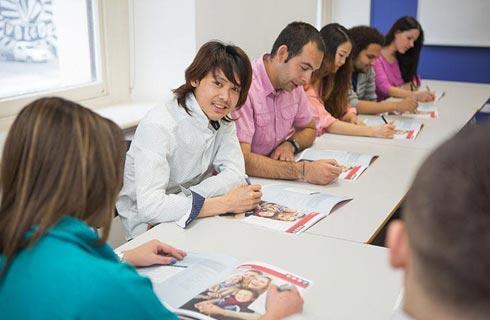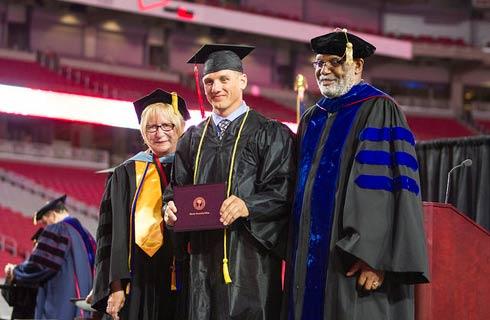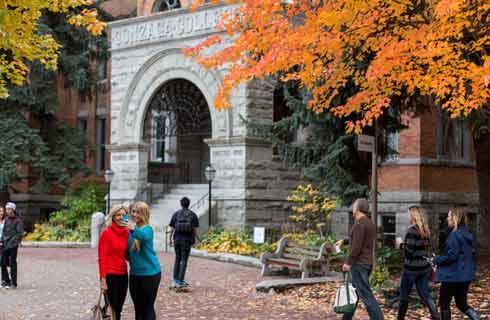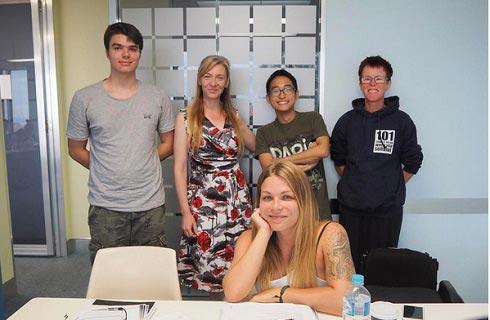生物医学工程理学硕士
Master of Science in Biomedical Engineering

学历文凭
Masters Degree

专业院系
Faculty of Engineering

开学时间

课程时长

课程学费

国际学生入学条件
IDP—雅思考试联合主办方

雅思考试总分
7.0
- 雅思总分:7
- 托福网考总分:95
- 托福笔试总分:160
- 其他语言考试:NA
CRICOS代码:
申请截止日期: 请与IDP联系 以获取详细信息。
课程简介
Research facilities and lecture courses for graduate programs are offered by the Department of Biomedical Engineering. The Department offers programs leading to the degrees of Master of Science and Doctor of Philosophy in Biomedical Engineering, as well as the Master of Science and Doctor of Philosophy with a specialization in Biomedical Sciences. The degrees differ according to the undergraduate preparation of the student, the former for students with a background in engineering or academically similar areas, and the latter in biological sciences.The research activities of members of the Department are directed at aspects of biomedical engineering, including but not limited to digital image processing, nano structured biomaterials, in-vivo nuclear magnetic resonance, including vascular imaging, stroke, functional magnetic resonance imaging (fMRI), as well as non-invasive biochemical analysis through spectroscopic methods, MRI of cerebral vascular disease, and restoration of function following spinal cord injury. In addition, research is performed by members of other departments who collaborate with those of the Department in areas that include adaptive controllers in medicine, aerosol inhalation and delivery, assistive technologies, biofilms, biomaterials and drug delivery, biomechanics of bone, biomechanics of walking, biomedical modeling, biophotonic and ultrasonic imaging, bracing and wheelchairs, cardiovascular biomaterials, cell and tissue cryobiology, computational neuroscience, control and restoration of motor movement, functional electrical stimulation, lab-on-a-chip, laser applications in medicine, mathematical modeling of drug delivery, mathematical modeling of the immune system, medical image processing, micro-computed tomography, modeling of biomedical processes, nano-bio-mechanical systems, nanotechnology and drug delivery, nanotechnology in medicine, oralfacial prosthetic reconstruction, orthodontic retraction appliances, rehabilitation engineering, rehabilitation robotics, resorbable implants, scoliosis and spinal column correction, spinal disorder assessment and treatment, therapeutic ultrasound and biomechanics in dentistry, tissue engineering, and ultrasound applications in medicine.
相关申请
 预科
预科 奖学金
奖学金 实习机会
实习机会 在校学习
在校学习 跨境学习
跨境学习 校园授课-线上开始
校园授课-线上开始 在线/远程学习
在线/远程学习
开学时间&学费
学费信息仅供参考,请与IDP联系以获取详细信息
| 开学时间 | 时长 | 学费 | 地点 |
|---|
学校排名

世界排名132
数据源:
泰晤士高等教育世界大学排名
关于阿尔伯塔大学

阿尔伯塔大学创办于1908年,在创新教学和研究方面拥有悠久的历史,是一所享誉国际的一流大学,在许多学科领域都名列前茅,其中包括护理学(全球第7)、工程学(全球前20)以及人工智能(加拿大第一)。阿尔伯塔大学在加拿大大学中名列前四位,在全球也位居100强之列(2025年QS世界大学排名),是一所催人奋进的大型沉浸式大学。来自159个国家的4.6万多名学生以该校为家。毕业后,学生将加入一个由世界各地30多万名校友组成的校友网络。该校的毕业生就业情况也在全球跻身100强。阿尔伯塔大学位于加拿大阿尔伯塔省埃德蒙顿,那里拥有强大而充满活力的经济,学生将在这座生机勃勃的年轻城市愉快地度过求学生活。主校区距离北美最大的城市公园,风景优美的北萨斯喀彻温河谷仅有几步之遥。那里是骑自行车、徒步旅行、滑雪等的理想场所。埃德蒙顿被称为''节日之城'',每年举办50多个节日庆祝活动,其中包括戏剧、体育、文化活动等等。无论您有何兴趣爱好,课余时间总有许多事情可做,而且每个月都会有一些精彩的活动。国际学生在校园中会有宾至如归的感觉,亲切友好的专业国际学生服务小组可随时帮助学生顺利过渡到求学生活中。该校提供各种便捷的现代化校内宿舍以满足各种住宿需求,确保学生找到合适的住所,能够像在家里一样感到轻松自在。国际学生还可能有资格获得根据学业成绩专门设立的奖学金。UA就业率同样为97%,在加拿大为就业率最高的大学之一,因其平均薪资率为加拿大最高,许多学生在毕业后留在本省。
本校相关课程

机械工程学士学位(合作社)
学历文凭
Bachelor Degree
开学日期
课程费用总额


康复科学哲学博士
学历文凭
Ph.D.
开学日期
课程费用总额


康复科学理学硕士
学历文凭
Masters Degree
开学日期
课程费用总额


言语语言病理学理学硕士(基于课程)
学历文凭
Masters Degree
开学日期
课程费用总额


职业治疗理学硕士
学历文凭
Masters Degree
开学日期
课程费用总额


物理疗法理学硕士
学历文凭
Masters Degree
开学日期
课程费用总额

其他相关课程

生物医学工程应用科学硕士
 达尔豪斯大学
达尔豪斯大学学历文凭
Masters Degree
开学日期
课程费用总额


生物医学工程技术文凭
 北阿尔伯塔理工学院
北阿尔伯塔理工学院学历文凭
Bachelor Degree
开学日期
课程费用总额


生物医学工程学士学位
 多伦多都会大学
多伦多都会大学学历文凭
Bachelor Degree with Honours
开学日期
课程费用总额


生物医学工程应用科学硕士
 渥太华大学
渥太华大学泰晤士高等教育世界大学排名:188
学历文凭
Masters Degree
开学日期
课程费用总额


工程科学应用科学学士-生物医学工程(荣誉学位)
 西蒙菲莎大学
西蒙菲莎大学学历文凭
Bachelor Degree with Honours
开学日期
课程费用总额


生物医学工程学硕士
 卡尔加里大学
卡尔加里大学学历文凭
Masters Degree
开学日期
课程费用总额










